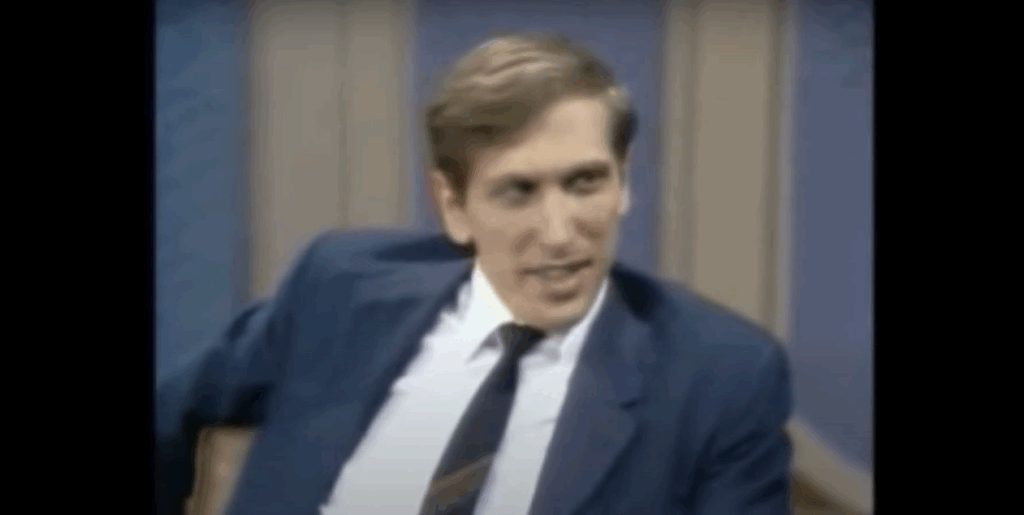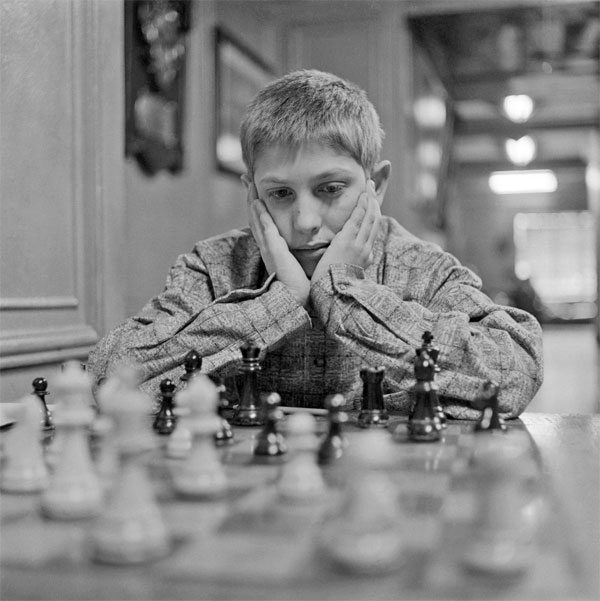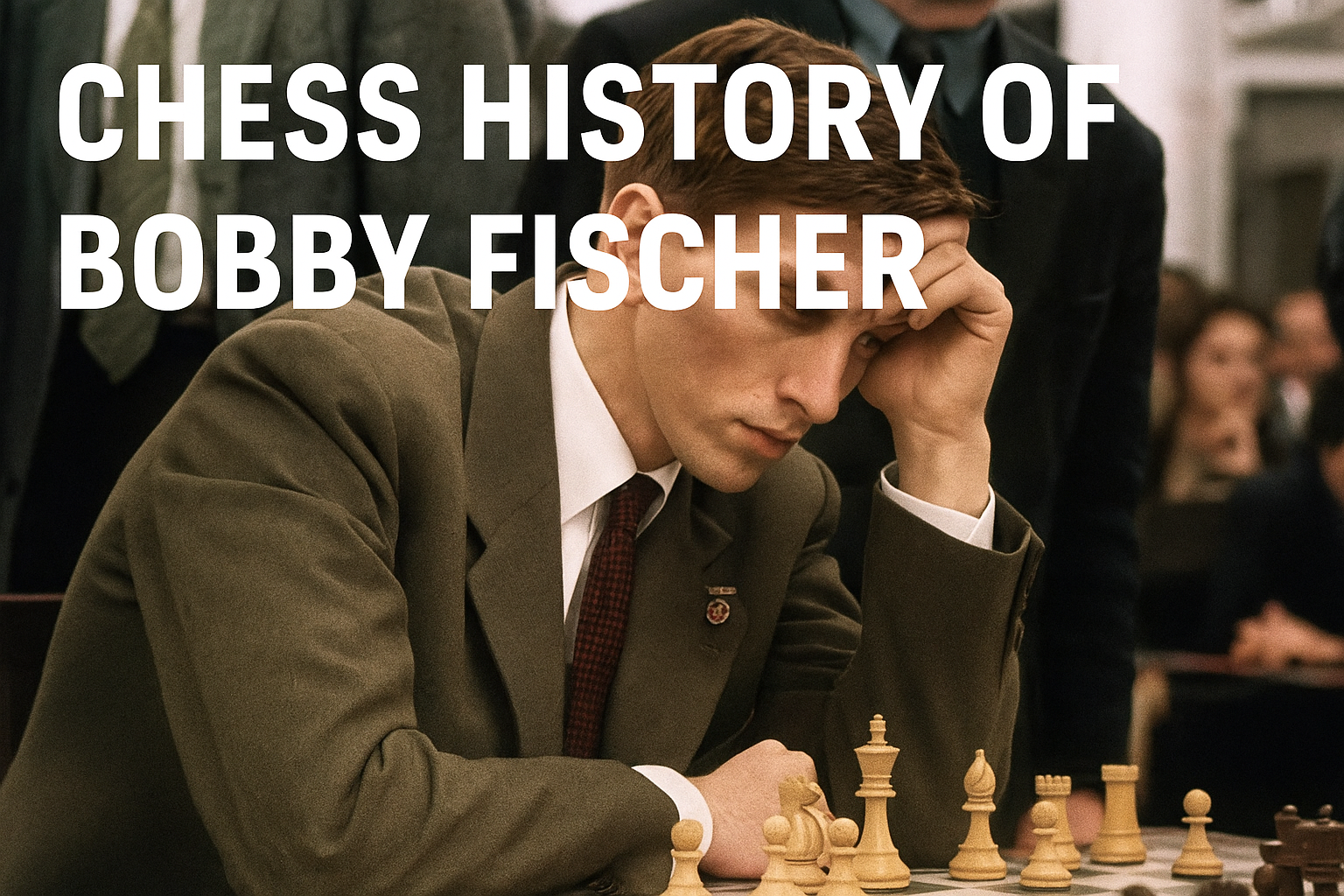Few names in chess history command the kind of reverence, intrigue, and mythos that Bobby Fischer does. Brilliant, bold, and famously reclusive, Fischer was not only a chess prodigy but a force that redefined how the world saw the 64 squares.
From defeating grandmasters at 13 to dismantling Soviet dominance at 29, Fischer’s journey was one of unrelenting genius, deep preparation, and raw psychological power.
In this article, we explore Fischer’s remarkable career, his epic 1972 World Championship against Boris Spassky, his trailblazing innovations like Fischer Random Chess, and his enduring influence on how we teach and learn chess—even in today’s online classrooms.
The Rise of a Prodigy: Early Genius and U.S. Championships

Born in 1943 in Chicago and raised in Brooklyn, Bobby Fischer was self-taught through books and relentless practice. By age 13, he played what is still called the “Game of the Century” against Donald Byrne—a masterpiece of tactical brilliance and foresight.
At just 14, Fischer became the youngest U.S. Champion in history, winning the title in 1958 with 8.5/11. He would go on to win every U.S. Championship he played—eight in total—often with dominant margins.
Fischer’s intense study habits, unmatched memory, and intuitive feel for positions set him apart from his peers. He wasn’t just playing chess—he was obsessed with mastering it.
1972: Bobby Fischer vs Boris Spassky — A Battle That Changed the World
The Cold War reached the chessboard in Reykjavík, Iceland, where Fischer faced Soviet World Champion Boris Spassky. It was more than just a chess match—it was East vs. West, freedom vs. control, and Fischer was the lone American trying to break the Soviet monopoly on the title.
After initial drama—Fischer nearly didn’t show up, citing camera distractions and unfair conditions—he found his rhythm and defeated Spassky 12.5–8.5, becoming the 11th World Chess Champion.
It wasn’t just a victory. It was a cultural moment. Fischer sparked a chess revolution in America, leading to a nationwide surge in chess clubs, tournaments, and interest in the game.
Also Read: The 1972 Bobby Fischer vs. Boris Spassky in detail
The Psychology of a Champion: Prep, Precision, and Pressure

Fischer was renowned for his mental toughness and psychological preparation. He studied his opponents obsessively, often catching them off guard with sharp novelties and deep opening lines. His calm demeanor at the board masked an iron will and unmatched intensity.
He once said, “I don’t believe in psychology. I believe in good moves.” But in truth, Fischer understood psychology better than most—he simply used it through his preparation and presence rather than mind games.
Fischer’s Opening Repertoire: A Masterclass in Precision
While many top players hop across a wide range of openings, Fischer had a more streamlined and perfected repertoire. His favorites included:
- 1. e4 as White — He called it “best by test”
- Sicilian Defense as Black — Especially the Najdorf Variation
- King’s Indian Defense and Grünfeld Defense against 1. d4
- Ruy López — Fischer’s deep understanding of this opening shaped many modern lines
His approach showed that depth can often beat breadth, a philosophy still used in online chess lessons today.
The Legacy of Fischer Random (Chess960)
Years after retiring from classical chess, Fischer introduced a new format: Fischer Random Chess (now called Chess960), where the back-rank pieces are randomized.
His goal? To eliminate the over-reliance on memorized opening theory and force players to rely on creativity and understanding.
Today, Chess960 is embraced by top grandmasters and is part of many online learning platforms, making it one of Fischer’s most lasting contributions.
Also Read: What is Freestyle Chess and How It is different from Traditional Chess
The Vanishing Act: Disappearance and Controversy
Following his 1972 victory, Fischer refused to defend his title in 1975 over disagreements with FIDE. He disappeared from competitive chess, resurfacing briefly in 1992 for a controversial rematch with Spassky.
In later years, Fischer became a controversial figure due to his extreme views and reclusive lifestyle. Yet, even as his public image darkened, his contributions to chess remained untouchable.
Fischer’s Influence on Modern Chess Training
Fischer’s legacy lives on in how we teach, study, and appreciate chess:
- Emphasis on opening preparation and game analysis
- Use of model games to train pattern recognition
- Focus on psychological readiness and discipline
- Integration of creativity through Chess960
- Widespread adoption of structured online chess lessons worldwide
At Kingdom of Chess, we use many of these same philosophies to train our young students — showing them how a game can shape minds, characters, and futures.
Conclusion: The Man Who Reshaped Chess Forever
Bobby Fischer was more than just a World Champion. He was a disruptor, a visionary, and a genius who took on the chess establishment and won.
His journey from a Brooklyn basement to the world championship podium is a testament to the power of passion, discipline, and singular focus. Whether you’re a parent enrolling your child in their first chess class or a coach training the next prodigy, Fischer’s influence is still felt on every square of the board.
Want Your Child to Learn Like Fischer?
At Kingdom of Chess, we help children develop deep thinking, focus, and creativity — values Fischer embodied throughout his career.
Let your child begin their journey into the world of chess — just like Bobby Fischer did.



